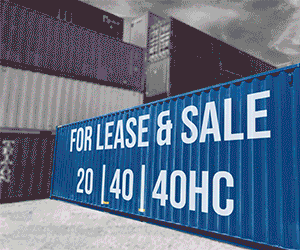Sustainability key to meet the evolving needs of future food consumers

As consumers are becoming increasingly particular about their food source and how ethically it is produced, food businesses and suppliers must adapt their supply chain strategies and practices to become sustainable, affirms Richard Pattinson, General Manager, GRIFFCO, in this OpEd contribution.
Logistics and distribution are two critical aspects of supply chain management that can greatly facilitate sustainability. In the food space, logistics encompasses all the activities that need to take place to get food from producers to consumers.
This includes everything from packaging, storage, and transportation—a well-run logistics operation can significantly reduce food wastage through its processes and also ensure that food reaches consumers on time.
On the other hand, sustainable distribution is the process of transporting goods in ways that minimize the environmental impact of the entire process. This can include everything from the use of fuel-efficient vehicles and reduced and eco-friendly packaging to choosing shipping routes that minimize air pollution.
The FMCG sector is currently one of the fastest-growing industries in the Middle East, and this unprecedented growth unlocks umpteen opportunities for businesses to invest in sustainable distribution practices.
Ethical discussions
By understanding the significance of logistics and distribution in relation to sustainability, businesses can make considerably ethical decisions about their supply chains. Furthermore, food supply chains have a tremendous influence on the environment, driving the urgent need to underline the grave sustainability concerns that are interlinked with logistics and administration of food products.
A sustainable food supply relies on manufacturing and distribution processes that protect and conserve land, air energy, and water while reducing wastage and emissions.
It also means that the food that comes from it is safe, accessible, and affordable. Inefficient and unsustainable food supply chains have a growing detrimental impact on the environment and society-sustainable distribution and implementing energy-efficient measures in transportation, warehouses, and stores can play a vital role in mitigating these impacts. By making minuscule changes, food businesses can together make a colossal impact on the environment.
Sustainability in food supply chains is not just advantageous for the planet; it can be highly profitable for business. Consumers are increasingly inclined towards buying food products from companies that are investing in and making an effort to build ethical and sustainable supply chains.
Reducing carbon footprint
Utilizing sustainable supply chain management processes enable food businesses to reduce their carbon footprint, decrease emissions, and meet the increasing number of health-conscious consumers’ needs.
Moreover, incorporating environmental practices within supply chain processes can greatly bolster the food supply, deliver safe and fresh food to consumers, and support local communities’ survival. Some of the most impactful practices include improving farming methods, optimizing logistics, revamping warehousing practices and adopting sustainable transport systems.
GRIFFCO, for instance, relies on a strategic sustainable sourcing program that targets farm-level integration of the supply chain across four continents. Achieving efficiency through grassroots-level integration is key to a greener supply chain. Logistical operations need to be planned meticulously, continually keeping the environment in mind for companies to reduce their adverse effects on ecosystems.
Want to stay updated on the latest industry news and trends? Subscribe today to receive your monthly news highlights directly in your inbox!










